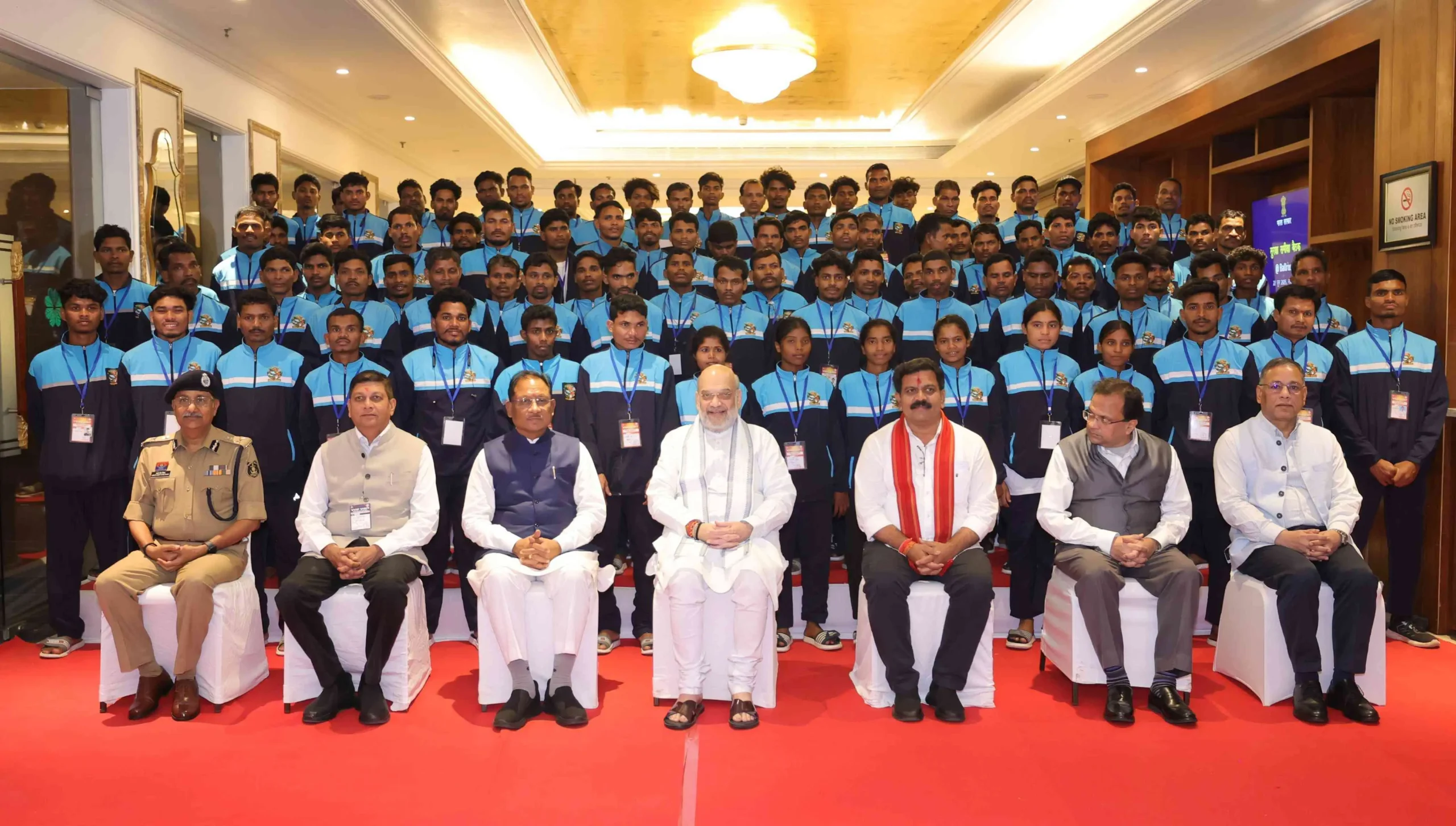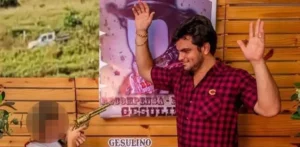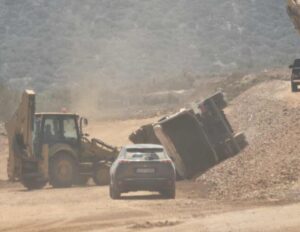
India: Rehabilitation Centers as a Guise for Forced Detention of Dissidents
Featured image: Union home minister Amit Shah and Chhattigarh chief minister Vishnu Deo Sai pose with alleged surrendered Maoists in Raipur. Source: X/Amit Shah
The State’s government has launched a “rehabilitation initiative” for those allegedly surrendering from the Maoist ranks, but reports are emerging that the scheme may not be the “humanitarian success” they claim it to be. Instead, some detainees have found themselves forcefully detained under the guise of “rehabilitation”, with no real prospect of returning to their homes. The ongoing State repression of the Maoists and poor-peasants of Chhattisgarh is raising significant concerns about police tactics and the State’s brutal repression unleashed against the people, specially against the Adivasi peasants in central India.
Chhattisgarh police and State officials have started an initiative known as “Poona Margham,” or “new path,” this “rehabilitation” initiative is allegedly designed to offer surrendered Maoists vocational training and the promise of a safer life. However, the reality for many detainees, such as Prasanna, a man in his fifties from Bijapur district, paints a different picture.
Prasanna, who was detained by the police for leading a peaceful protest against militarization in his village, was taken to what was supposed to be a rehabilitation center. He, along with others, was forced into a “training” program that he says was more about illegal detention than skill development. He, along with dozens more of detained, was imprisoned with no trial. They were presented as “Maoists” to the press, in order to claim that the offensive by the old Indian State is successful and to reinforce the idea of what Amit Shah, the old Indian State’s Interior Minister has promised several times: “Maoism will be wiped out by March 31, 2026”. However these are not Maoists surrendered and captured after victories of the old Indian State, but peasants who are arbitrarily kidnapped from their homes.
According to Prasanna, detainees were told they would be allowed to return home after posing for a photograph with Union Home Minister Amit Shah, where they told the media that they were “surrendered Maoists”, but after the photo-op they were then again returned to captivity.
Despite being promised training opportunities, many detainees report spending their time doing little more than watching others or doing menial work, without any actual vocational development. Most of them are poor peasants and they even asked for permission to return home to harvest, which was immediately rejected.
Reports from detainees reveal that many are subjected to menial labor, such as cleaning, cooking, or clearing weeds, with no meaningful engagement in skill development activities, usually in the service of the police and security-forces inhabiting the facility. According to reports, no real efforts are made to help detainees transition into stable employment.
When asked if anyone ever tries to escape, Prasanna answers: “Not a single one, […] The police have all our details. We are told that if anyone runs away, the next time their family sees them, it will be in a jhilli” [A plastic sheet, used to wrap up the bodies of dead insurgents].
Women detainees report additional forms of mistreatment, with accusations of sexual harassment and exploitation by male officers. Gayatri, a woman detained at one of the centers, described how female detainees were regularly assigned domestic chores and subjected to sexual harassment and advances by male security personnel. She also described witnessing a fellow detainee suffer a mental breakdown due to the prolonged and harsh conditions.
Human rights activists are deeply critical of the system in place. V. Suresh of the People’s Union for Civil Liberties (PUCL) argues that the forced detention and prolonged stays in rehabilitation centers constitute arbitrary imprisonment. He described the policy as “ethically and legally unacceptable,” raising alarms about the use of coercion and the trampling of civil liberties.
The situation is particularly dire for local peasants who find themselves swept into the state’s anti-Naxal operations. Chhattisgarh has a history of criminalizing peaceful resistance, with many Adivasis branded as Maoists simply for opposing State policies or standing up against military presence in their villages. The State’s drive to militarize the region has further alienated these communities, as security forces are frequently deployed to build camps and roads under the guise of development, often linked to mining interests of imperialist and local big corporations.
Prasanna’s story echoes that of many peasants: targeted not for being insurgents but for resisting State-led projects that they view as harmful to their land and livelihoods. The protest he helped lead against the construction of a security camp ended with him and other peasants being detained, subjected to physical abuse, and eventually sent to the rehabilitation center under the false pretense of being Maoist collaborators. Far from the supposed purpose of the state of “rehabilitation”, the State’s tactics are aimed at silencing any opposition, whether through military violence or the institutionalization of forced detention under the guise of rehabilitation.

